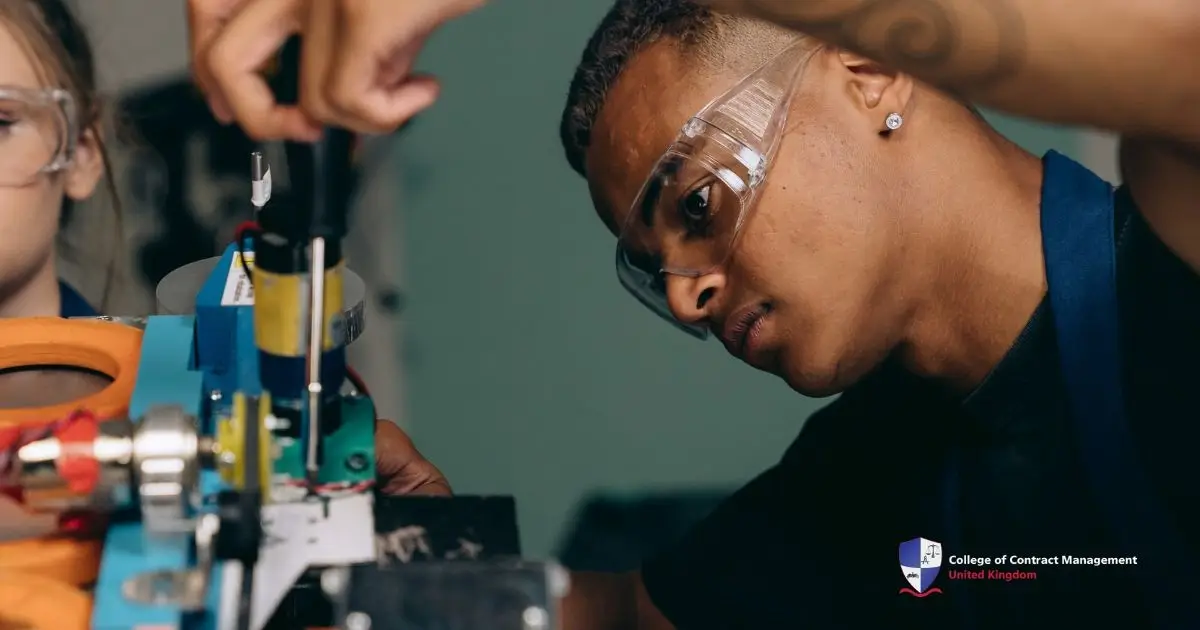As industries grow and new technologies develop, the need for skilled engineers continues to increase. For this reason, engineering apprenticeships provide a unique way to work with the skill while learning the theory. This programme helps people to gain practical skills and understand the techniques in real situations. In the same way, it helps them prepare to compete in the job market.
In this article, we'll take a look at the important skills and qualifications for an apprenticeship in engineering. We'll cover the technical and soft skills for the job. In addition to that, we'll discuss the requirements and expectations of companies. After all, this guide helps people to step into an engineering career. Let's dive deeper!
What are engineering apprenticeships?
Engineering apprenticeships are training programmes that allow people to gain the skills and experience to become engineers. This programme combines a paid job with academic study. In this setup, apprentices work on the site while also learning in the classroom. That is to say that this training focuses on shaping the skills for careers in engineering.
These programmes have opportunities in many fields, such as civil, mechanical, electrical, and software engineering. During this time, people work together with experienced engineers. They learn how to design, test, and maintain the systems or machinery. In fact, apprenticeships allow people to work while still completing their studies. With this in mind, the goal is to give them the skills to become professionals in their field.
Qualifications for apprenticeships in engineering
Engineering apprenticeships provide a great chance to gain hands-on experience and develop skills in the field. This programme helps bridge the gap between learning and working. However, applicants must meet certain qualifications to show that they're ready for the job. These requirements help them to handle the challenges in the engineering field. Here are the examples:
- Educational requirements: Most engineering apprenticeships look for at least a high school diploma, especially in math, science, and tech. For some fields, participants need to be experts in specific subjects. At the same time, they may need to complete a training or course.
- Relevant experience: This training is for people with no work experience. However, having relevant experience can help the applicant stand out. For instance, having internships or part-time jobs in engineering fields. In another case, working on a personal project also shows passion and skills in this area.
- Certifications: Certain training fields need to have certificates. For example, some fields might need recognition in welding or CAD software. On the other hand, some may offer extra training like project management. These help candidates show their skills and make them stand out in the industry.
Opportunities in engineering apprenticeships
Engineering apprenticeships provide a great way to gain practical experience while learning on the field. The programmes allow apprentices to apply what they’ve learned to the working workplace. As industries grow and adopt new technologies, there is a growing need for skilful workers. Due to that reason, the training is a perfect opportunity to have a future career.
As industries grow, new engineering fields are growing and offering more career options. This is because of advances in technology and the need for innovative workers. Engineers are not only solving problems on the site but also global challenges. This growth opens up to opportunities for people to improve their passion. Below, let's see what this field offers.
Mechanical engineering
Mechanical engineering apprenticeships help people to gain skills and knowledge to work with machines. People will work with mechanics to design, build, and repair mechanical systems. At the same time, they learn subjects like math, physics, and computer-aided design (CAD) software. Another key point about this programme is that it lasts between two to five years and gives take-home pay. In short, it helps people to start a career in engineering and manufacturing.
Electrical engineering
Electrical engineering apprenticeships involve working with experts to install, maintain, and repair electrical systems. In a similar manner, people learn about safety rules to deal with the components. What’s more about this programme is that it lets people earn money while gaining experience in the field. For these reasons, people can get a qualification that can help them get a good job.
Civil engineering
Civil engineering apprenticeships allow people to work while learning in the field. They work on building projects like roads, bridges, and buildings. On the other hand, some roles focus on transportation, environmental, or structural projects. What makes it interesting is that they earn a salary while training for the job. In the end, this route offers career opportunities as a technician, site engineer, or Chartered Engineer (CEng) with further growth.
Industrial engineering
Industrial engineering apprenticeships help people learn new skills and knowledge in the field. In this training, they're managing product flow, checking product quality, planning the production, and improving those flows. By working on real projects, apprentices develop skills in solving problems, analysing data, and so on. In the long run, it helps them get ready for a successful career in the field.
Software engineering
Software engineering apprenticeships are programmes where people work with software experts. During the training, trainees work on projects while also learning about coding, system design, and software development processes. The goal of this programme is to provide the apprentice with valuable skills and insights in the area. As a result, they can get experiences that help them land a perfect job in the field.
How to prepare for engineering apprenticeships
To prepare for engineering apprenticeships, the first thing to do is understand the type of engineering. For instance, mechanical, electrical, or civil. Then, research the job to learn what it involves and what skills it needs. In addition to that, improve knowledge in relevant subjects as well as tools or programming languages commonly used in the field.
Alongside technical skills, soft skills like communication and teamwork are also important. For instance, participating in group projects or explaining problem-solving methods to others can help improve these skills. At the same time, being able to adapt is important for this dynamic industry. Staying flexible when things change is all part of teamwork. With practice, these skills become easier to use.
Lastly, make sure the resume and cover letter show the need for engineering apprenticeships. These include work history and personal projects. During interviews, talk about what makes this field interesting and how to handle the work. Given this point, connecting with experts and colleagues can give insights and open doors to many chances.
Improve your engineering skills with CCM!
To sum up, engineering apprenticeships combine work and study to help people gain skills in engineering areas. For instance, mechanical, electrical, civil, and software engineering. The programme requires both technical and soft skills to ensure people can work well in those fields. Before applying for this training, ensure to understand what the job needs and what it involves. Given those points, this opportunity allows people to learn while earning salaries. In the end, it helps people to get better at their careers.
If you want to boost your chances of getting career opportunities, enrolling at the College of Contract Management is perfect. The college offers courses that equip you with the skills and knowledge in various areas. Aside from engineering, you can also learn different subjects like business, management, and healthcare. By all means, you can prepare and set yourself up for success in a competitive job market. Don’t miss out on this opportunity—enrol today and take the first step to advancing your career!





